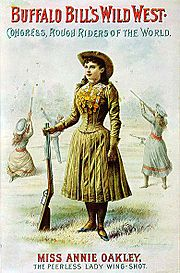Having been fortunate in college to have a History Prof who had a keen interest in Lincoln, I was given the opportunity to read many of the primary sources when we covered the Civil War. What always remained with me were the writings of Lincoln which stood out in sharp contrast to the generally accepted truth of what he was about. There has been a growing annoyance with me that he now has almost received deification what with O”Reilly’s new book and films. I was pleased to find a post today over at Front page mag.: The Truth about Abraham Lincoln & Slavery: Breaking through the mythology.
The final words from the post, see if it sounds familiar:
Why didn’t Lincoln feel the same about Southern secession? Following the money might help with an answer. Throughout most of our history, the only sources of federal revenue were excise taxes and tariffs. During the 1850s, tariffs amounted to 90 percent of federal revenue. Southern ports paid 75 percent of tariffs in 1859. What “responsible” politician would let that much revenue go?
The book uses exact quotes from his writings. You decide what the civil war was all about. Thomas DiLorenzo, economics professor at Loyola University Maryland, exposed some of the Lincoln myth in his 2006 book, “Lincoln Unmasked.” Now comes Joseph Fallon, cultural intelligence analyst and former U.S. Army Intelligence Center instructor, with his new e-book, “Lincoln Uncensored.” Fallon’s book examines 10 volumes of collected writings and speeches of Lincoln’s, which include passages on slavery, secession, equality of blacks and emancipation. We don’t have to rely upon anyone’s interpretation. Just read his words to see what you make of them.:
In an 1858 letter, Lincoln said, “I have declared a thousand times, and now repeat that, in my opinion neither the General Government, nor any other power outside of the slave states, can constitutionally or rightfully interfere with slaves or slavery where it already exists.”
“My declarations upon this subject of negro slavery may be misrepresented, but can not be misunderstood. I have said that I do not understand the Declaration (of Independence) to mean that all men were created equal in all respects.”
“I am not, nor ever have been, in favor of … making voters or jurors of Negroes nor of qualifying them to hold office nor to intermarry with white people; and I will say in addition to this that there is a physical difference between the white and black races, which I believe will forever forbid the two races living together on terms of social and political equality.”
“I view the matter (Emancipation Proclamation) as a practical war measure, to be decided upon according to the advantages or disadvantages it may offer to the suppression of the rebellion.” He also wrote: “I will also concede that emancipation would help us in Europe, and convince them that we are incited by something more than ambition.” At the time Lincoln wrote the proclamation, war was going badly for the Union.
The Emancipation Proclamation was not a universal declaration. It detailed where slaves were freed, only in those states “in rebellion against the United States.” Slaves remained slaves in states not in rebellion — such as Kentucky, Maryland and Delaware. The hypocrisy of the Emancipation Proclamation came in for heavy criticism. Lincoln’s own secretary of state, William Seward, said, “We show our sympathy with slavery by emancipating slaves where we cannot reach them and holding them in bondage where we can set them free.” Read more over at Front page mag




